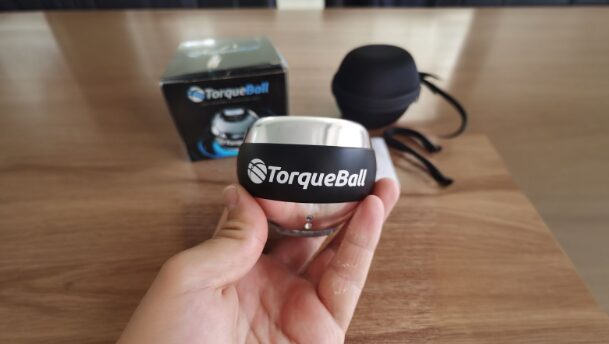TorqueBall Scam Warning: Man Loses Finger After Counterfeit Device Explodes—Complaints Surge

January 17, 2025 – Houston, TX, Local musician David Hernandez, 34, lost his ring finger after a counterfeit grip strengthening device marketed as “Curaball” catastrophically failed during use, sending metal fragments through his hand. The device, purchased through a Facebook advertisement for $22.99, was believed to be a legitimate TorqueBall—a medically-designed rehabilitation tool.
“The internal spring mechanism exploded,” Hernandez explained from his hospital bed at Memorial Hermann. “It sounded like a firecracker going off in my hand. When I looked down, my finger was barely attached.”
The device that destroyed Hernandez’s finger was sold as a “Curaball Premium Grip Trainer” through a now-defunct website. Investigation reveals it used a high-tension metal spring instead of the progressive resistance system found in authentic TorqueBalls.
Surgeons were unable to save the finger. Hernandez, who plays guitar professionally, faces months of rehabilitation and an uncertain musical future.
“I thought I was saving thirty bucks,” he said. “Now I’m looking at $50,000 in medical bills and the end of my career.”
Counterfeit Characteristics to Avoid:
- Prices under $70 (authentic TorqueBalls retail for $75-85)
- Names like “Curaball,” “TwistBall,” “Torque Pro,” or other variations
- Sellers with generic names or no physical address
- Products shipped directly from overseas in minimal packaging
- Devices that feel unusually heavy or make rattling sounds
Dr. Angela Foster, who treated Hernandez at Memorial Hermann’s trauma center, warns: “We’re seeing more injuries from counterfeit fitness devices. These aren’t just ineffective—they’re dangerous. The authentic TorqueBall has multiple safety mechanisms. These knockoffs are essentially spring-loaded weapons.”
The Curaball website disappeared within hours of the injury, but similar devices remain available across social media marketplaces and e-commerce platforms.
Physical therapist associations are now warning members to verify devices before recommending them to patients. “If a patient brings in a suspiciously cheap device, we tell them not to use it,” says Lisa Park, president of the Texas Physical Therapy Association. “The risk isn’t worth it.”
TorqueBall’s manufacturer has issued a statement: “We are horrified by Mr. Hernandez’s injury. This is exactly why we’ve spent over $100,000 fighting counterfeits. Authentic TorqueBalls are only sold through our website and authorized medical suppliers. Every genuine device has a holographic security seal and verification code.”
If you’ve purchased a grip strengthening device online recently:
- Stop using it immediately if purchased for under $40
- Check for authentication seals and proper medical device labeling
- Verify the seller through the manufacturer’s website
- If in doubt, don’t use it
Hernandez has launched a GoFundMe to cover medical expenses and wants his story to serve as a warning: “People need to know these fakes aren’t just rip-offs. They can literally destroy your life. That ‘deal’ you’re getting might cost you a finger—or worse.”
The Consumer Product Safety Commission is investigating and asks anyone injured by counterfeit fitness devices to file a report at SaferProducts.gov.
Legal Note: Curaball is not affiliated with TorqueBall. The use of similar names is a common counterfeiting tactic designed to confuse consumers.
Legal Note: Curaball is not affiliated with TorqueBall. The use of similar names is a common counterfeiting tactic designed to confuse consumers.

Source: TorqueBall Scam Warning: Man Loses Finger After Counterfeit Device Explodes—Complaints Surge



